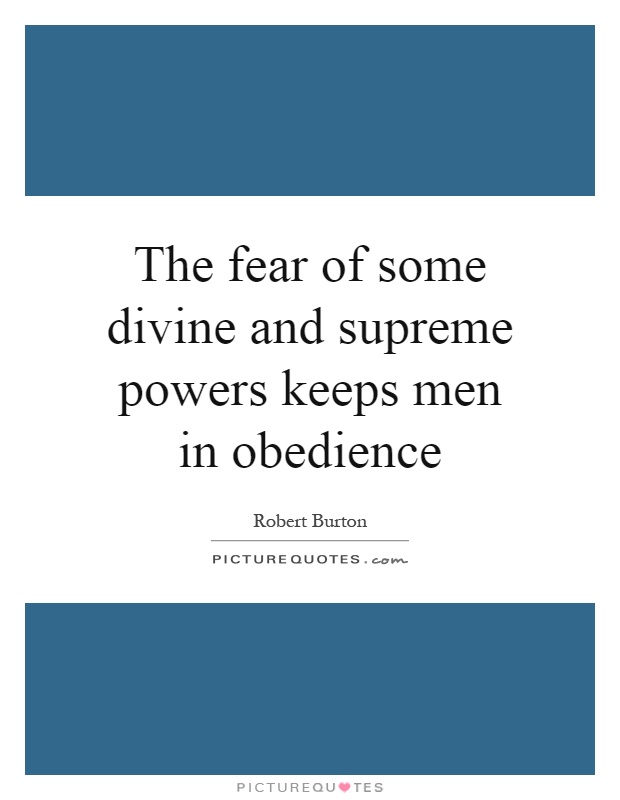The fear of some divine and supreme powers keeps men in obedience

The fear of some divine and supreme powers keeps men in obedience
Robert Burton, a 17th-century English scholar and writer, explored the concept of fear of divine and supreme powers in his famous work, "The Anatomy of Melancholy." In this extensive treatise on the causes and cures of melancholy, Burton delves into the psychological and spiritual aspects of human behavior, including the role of fear in keeping men in obedience to higher powers.Burton believed that the fear of divine and supreme powers was a powerful motivator for human behavior. He argued that the belief in a higher power, whether it be God, fate, or some other supernatural force, instilled a sense of awe and reverence in individuals that compelled them to obey certain moral and ethical codes. This fear of divine retribution or punishment served as a deterrent against sinful or immoral behavior, thus keeping men in line with societal norms and expectations.
Burton also explored the idea that the fear of divine and supreme powers could manifest in different ways, depending on an individual's religious beliefs and cultural background. For some, this fear might be rooted in a strict adherence to religious doctrines and commandments, while for others, it might be a more abstract sense of awe and wonder at the mysteries of the universe. Regardless of the form it took, Burton believed that this fear was a universal and fundamental aspect of human nature.












 Friendship Quotes
Friendship Quotes Love Quotes
Love Quotes Life Quotes
Life Quotes Funny Quotes
Funny Quotes Motivational Quotes
Motivational Quotes Inspirational Quotes
Inspirational Quotes